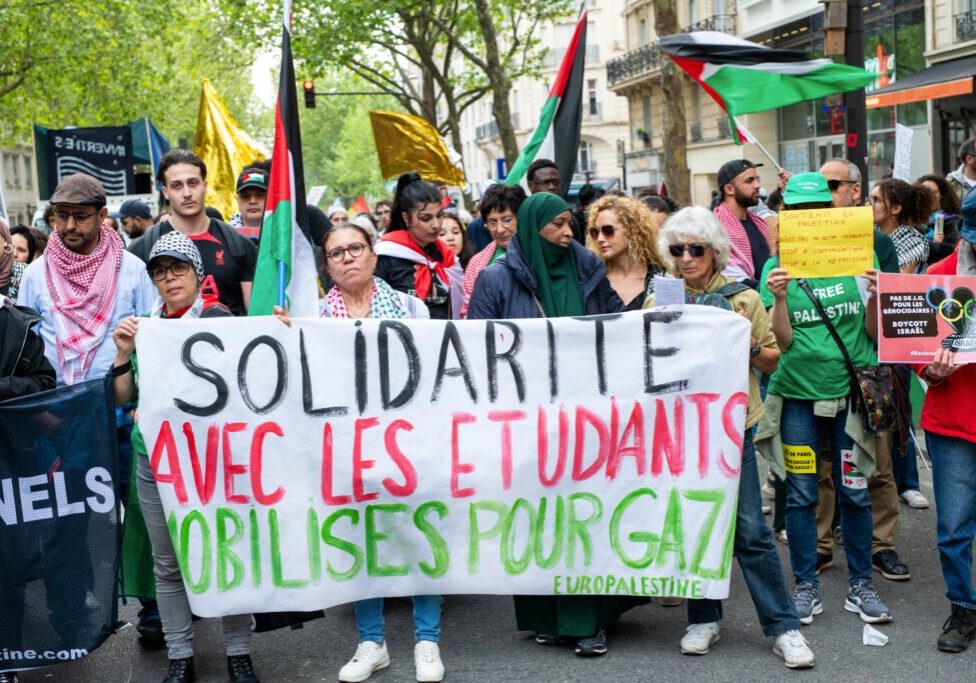Australia/Israel Review
Europa Europa: Migrant Madness
Sep 1, 2015 | Douglas Davis

Douglas Davis
Thousands of migrants are crossing the Mediterranean to seek refuge in Europe. They are fleeing the war-torn and failed states of the Arab world and Africa – Syria, Iraq and the Maghreb, Ethiopia, Eritrea, Somalia, Sudan, Nigeria… the list goes on. Some, tragically, are drowning as the rickety boats provided by the people traffickers fail to make the crossing, but many more are washing ashore in Italy and Greece. From these points, they are able to move freely across non-existent borders as they head to the wealthier states of northern Europe.
Germany is expecting 450,000 unchecked migrants this year; Britain fewer, thanks to its decision not to join Europe’s open-border arrangement. Even so, tens of thousands are smuggling themselves into Britain through the Channel Tunnel in the backs of trucks that are ostensibly carrying conventional cargoes from the Continent. Some of the newcomers are legitimate asylum seekers who might be eligible for resettlement; others are economic migrants; technically, illegal immigrants. Given the numbers, relatively few claims are likely to be tested and relatively few migrants will be returned to their countries of origin.
The huge numbers will produce huge pressures on austerity-strapped Europe. Homes, school-places, health-care facilities and welfare payments will have to be found, along with the unquantifiable needs that are entailed in the absorption process. And the crisis is providing another, more insidious, challenge for European governments: a maypole around which the xenophobic far-right are already beginning to gather.
In well-heeled Vienna, the government is attempting to appease the far-right by making 2,000 migrants sleep rough in the grounds of an already-overcrowded refugee centre. The extremists might be appeased, but the outrage of the human rights industry has been galvanised. In Germany, racist attacks on refugee centres, ranging from verbal abuse to fire-bombings, have tripled over the past year and now occur almost daily. In Hungary, home to the neo-Nazi Jobbik Party, the Government is throwing up a 13-foot-high wire fence along its border with Serbia to keep out migrants travelling into Europe via the Balkans (Hungary’s Prime Minister, Viktor Orban, describes the “masses of illegal immigrants” as a “threat”).
Such is the scale of the problem. But what really worries the political classes of Europe more than over-strained social structures, falling domestic living standards and emerging political threats is the number of undocumented migrants who are flooding into Europe with hostile intent. One refugee looks very much like another, and ISIS has already announced that its supporters are among them. Memories of the 2008 Mumbai attacks remain fresh and potent, the ultimate nightmare.
The politicians must do something to save their political skins, but what? All the huffing and puffing is failing to stem the tide. British Prime Minister David Cameron, sitting on a tiny parliamentary majority, knows he is not facing a threat from the far-right but, more dangerously, from the substantial minority of Eurosceptics within his own Conservative Party. If and when the migrants become a major headache in Britain, as they are likely to do later in the year, there will be a clamour for tougher action. And that could set Britain on a collision course with Europe.
There might, for example, be calls for a nationwide dragnet to scoop up all the migrants and deposit them back in mainland Europe. Britain has no obligation to accept economic migrants. And while it is obliged to offer a safe haven to legitimate asylum seekers, the asylum seekers themselves are obliged to seek asylum in the first “safe” country they reach. Those arriving in Britain are likely to have travelled through half a dozen “safe” European countries, including France, but chose to push on to Britain where the authorities are considered to be kinder and more generous than others.
Cameron has escaped the wrath of the Eurosceptics so far only because parliament is enjoying its summer recess. But just before he took off for the sunshine abroad, Cameron delivered a muscular speech in which he appeared to be getting his revenge in early.
“Over generations,” he said, “we have built something extraordinary in Britain: a successful multi-racial, multi-faith democracy. It is open, diverse, welcoming – these characteristics are as British as queuing and talking about the weather.” Then, addressing Britain’s three million Muslims, he got down to brass tacks: “I know how much you hate the extremists who are seeking to divide our communities and how you loathe that damage they do… I want to work with you to confront and defeat this poison.”
But, he added, “you don’t have to support violence to subscribe to certain intolerant ideas which create a climate in which extremists can flourish. Ideas which are hostile to basic liberal values such as democracy, freedom and sexual equality; ideas which actively promote discrimination, sectarianism and segregation; ideas – like those of the despicable far right – which privilege one identity to the detriment of the rights and freedoms of others. And ideas also based on conspiracy – that Jews exercise malevolent power or that Western powers, in concert with Israel, are deliberately humiliating Muslims because they aim to destroy Islam…”
These are sentiments that Cameron had only dared to whisper in the past. But now he clearly feels the need to say them out loud. A reassurance but also a warning: that British Muslims have to choose between embracing tolerant, liberal values or acquiescing in ideas that underpin the poison of Islamic extremism.
This article is featured in this month’s Australia/Israel Review, which can be downloaded as a free App: see here for more details.
Tags: Europe






